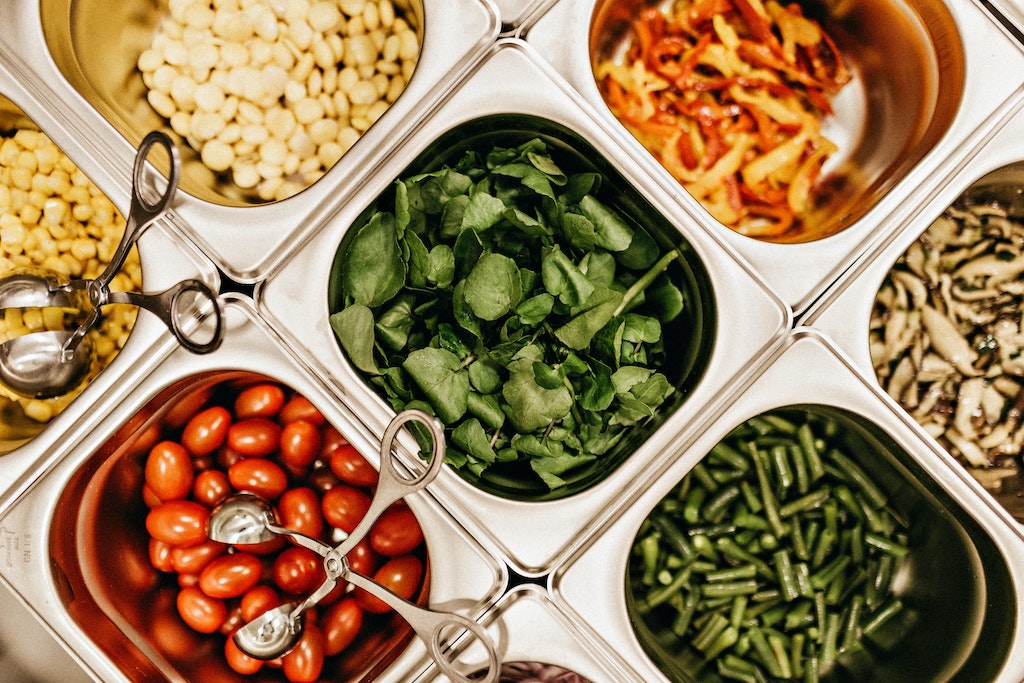3 Mins Read
Canteens across Berlin’s universities will now be serving predominantly vegan and vegetarian meals to lower its carbon footprint. Students will be able to choose from a range of plant-forward dishes for the new term, with carbon-heavy meat and fish making up just 4% of the menu.
Berlin’s universities will now be serving up mainly vegan and vegetarian meals, with 34 canteens and cafes across the capital’s institutions changing their menus this October. The new menu will be 68% vegan, 28% vegetarian and 4% will contain meat or fish. Only one meat option will be offered for four days a week—every Monday being completely meatless.
The latest menu changes are part of a push to make university canteens more climate-friendly, with animal-based foods like meat, seafood and dairy representing the most carbon-intensive products in the food system.

Students want more vegan options
Speaking to the BBC, Daniela Kummle of Studierendenwerk, the group running 34 canteens across universities and colleges in Berlin, said that demand for more vegan and meatless options had been steadily on the rise, especially as young people become more aware about the climate impact of foods.
The menu had been revised by Studierendenwerk amid the pandemic, “so that our offer is more climate-friendly,” she said. Instead of currywurst and schnitzel, healthier plant-based ingredients such as legumes, pulses and seeds will feature more heavily on the menu in dishes like vegetable stews and chickpea and quinoa salad bowls.
Kummle added that so far, the response from Berlin’s student population about the menu change has been mainly positive. It’s no surprise, given a number of polls indicating the surging popularity of plant-forward diets in Germany, Europe and across the world.
A recent poll conducted by Berlin-based plant-based food company Veganz found that the 100% vegan population in Germany had surged to 2.6 million people, while the number of flexitarians now make up as many as 30% of the population. Another survey showed that people who identify as full meat-eaters are now a minority in Germany.

Plant-based impact
Scientists have long urged for a shift towards plant-based diets in order to curb carbon emissions. Within the EU, livestock farming has a higher carbon footprint than all cars and vans on the road, according to Greenpeace.
Globally, UN data shows that animal agriculture drives nearly a fifth of all greenhouse gases, primarily due to methane emissions and its role in fuelling deforestation and unsustainable land and water use.
With awareness about the footprint of food on the rise, more initiatives are now being launched to promote plant-based eating as part of climate action. Just last month, German carmaker Volkswagen ditched its traditional currywurst sausages for a low-carbon vegan version in its main cafeteria in a bid to become more sustainable.
Volkswagen also said that it will be revamping its menus across all its canteens, serving more vegan and vegetarian dishes and eliminating factory farmed meat entirely by 2025.
Lead image courtesy of Quorn.




